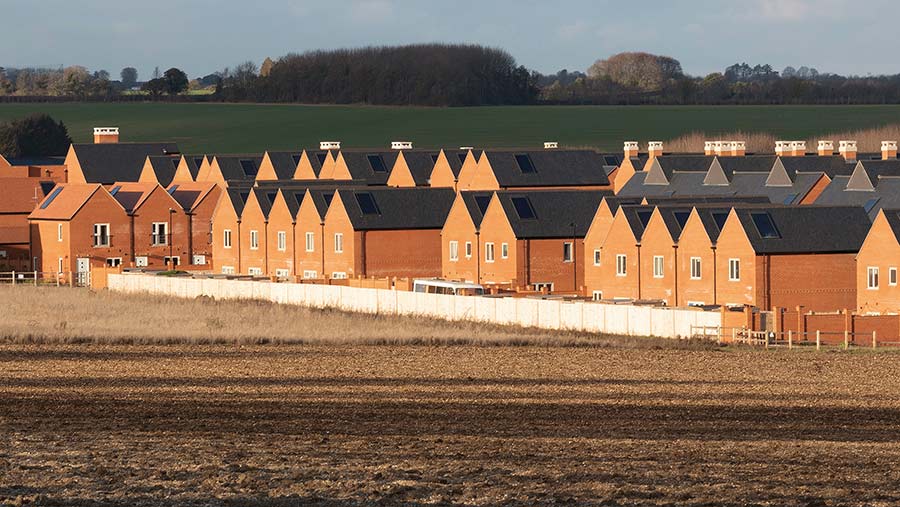Delay to building rules adds to income uncertainty for farmers
 © petert2/Adobe Stock
© petert2/Adobe Stock A delay to the introduction of building rules designed to offset environmental damage has been described as “bitterly disappointing” by farm leaders.
New rules around biodiversity net gain (BNG), where developers would have to demonstrate a minimum 10% uplift in biodiversity by enhancing existing habitats or creating new ones, were due to be introduced in November, but are now not expected to come into force until next year.
Under the terms of the legislation, construction companies would make payments to farmers who managed the land under long-term agreements for BNG.
See also: Farmers to lose out as housebuilders ‘let off’ on pollution
Martin Lines, chief executive of the Nature Friendly Farming Network, said: “The delay to BNG is bitterly disappointing when many farmers have started planning how they can deliver projects.
“This is yet another worrying row-back on nature and climate investment that would provide a valuable income stream for farm businesses.”
The delay to BNG comes hot on the heels of a government attempt to junk legacy EU rules that oblige developers to show how they would prevent or offset water pollution.
This plan was ultimately thwarted by the House of Lords, but prime minister Rishi Sunak is rumoured to be considering resurrecting the changes through a new piece of legislation.
Joe Stanley, East Midlands representative on the NFU’s National Environment Forum, said: “Having attended the Inaugural Green Finance Summit at Downing Street in June, the farmers present were left with the clear direction from the secretary of state that income streams from nutrient neutrality, BNG and carbon would form an important element of both farm income and achieving our national environmental targets.
“Recent weeks have demonstrated that such policies are built on foundations of sand, sand that has been thrown in the gears of farm businesses which were in the process of agreeing such trades with developers and others.”
